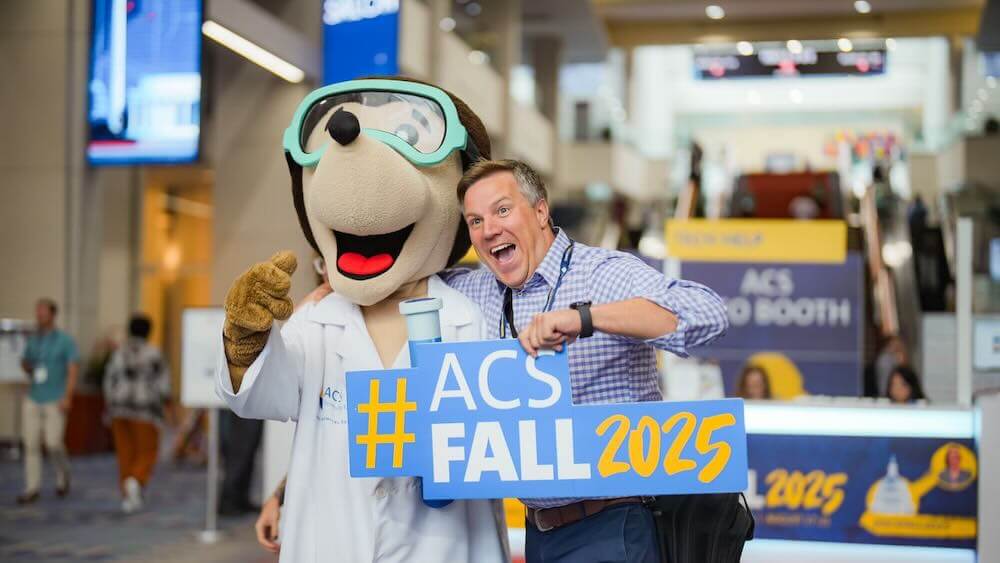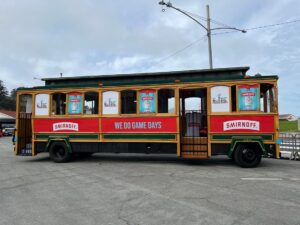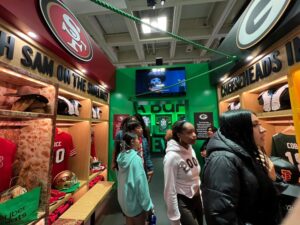


ACS Fall 2025 took place Aug.16-21 at Washington, D.C.’s Walter E. Washington Convention Center.
More than 10,000 chemists traveled to the U.S. capital in August for the American Chemical Society’s (ACS) Fall 2025 Meeting. In addition to offering a robust scientific program, the event demonstrated the society’s commitment to sustainability by cutting energy use and food and plastic waste over the course of five days. “Sustainability is a core value of ACS, so we select venues and vendors based on their commitment to sustainability,” said Liz Huh, vice president of events, meetings, and expositions at ACS.
The specifics of ACS’s meeting sustainability initiatives are determined by five overall goals — focusing on energy, reducing plastic waste, saving fuel, conserving trees, and demonstrating the society’s commitment to green meetings. “We confirm early in the planning process that vendors practice sustainability and ACS publicizes the sustainability efforts of the partners during the registration process so attendees are aware,” Huh said.
ACS Fall 2025 whole-heartedly embraced the organization’s five pillars of sustainability. This meant not only reducing emissions but encouraging attendees to think of themselves as stakeholders in the game by embracing green transportation traveling to and from Washington, D.C. and utilizing ACS-provided shuttles during their five days in the city.
Green by Design
At this year’s meeting, event organizers worked with local stakeholders to track energy use at the Walter E. Washington Convention Center and meeting hotels, including carbon emissions, pounds of material recycled and composted, and water and electricity utilization. “We look for partners that have processes in place to track and report metrics such as energy usage, water consumption, carbon emissions, and waste diversion,” Huh said. “The same applies for food and beverage: The venues must have established relationships with local vendors for sourcing ingredients and prioritizing seasonal offerings on their menus.”
Meeting at the Walter E. Washington Convention Center helped ACS save fuel by concentrating meeting venues. Additional meetings were held at the Marriott Marquis Washington, D.C. and Westin Washington, D.C. City Center, both within walking distance, which reduced the number of shuttles needed. Buses ran every 15-20 minutes and schedules were posted throughout meeting venues, reducing the need for attendees to use taxis or ride-share services. To save even more fuel in terms of transporting food to the center, the planning team ordered as much locally produced food and beverages as possible — labeling the local ingredients used in buffet meals to raise awareness among attendees — and renting live plants and using only locally grown flowers in arrangements.
In addition, ACS Fall 2025 was almost entirely paperless. Badges printed on recycled paper and lanyards and clips made from recycled materials demonstrated the society’s commitment to a circular economy. The society also used digital signage as much as possible, provided a digital program on the ACS website and in an event-specific mobile app, and used badge scanners instead of paper drink tickets at receptions. The meeting was also virtually plastic-free, thanks to water refilling stations — equipped with glassware rather than disposable cups — throughout the convention center and meeting hotels. ACS also provided attendees with a map of all meeting venues that included locations of recycling bins and water-filling stations.
Sharing Is Caring
Partnering with meeting vendors who share their sustainability goals has been key to ACS’s progress toward greener meetings — and demonstrating this commitment to stakeholders year after year. The society uses its website, conference app, pre- and post-event emails, and on-site digital signage to communicate with attendees about green-meetings practices. They even encouraged attendees and exhibitors to take individual action by providing sustainability tips online and through on-site digital signage These included booking non-stop flights in economy class and opting for keyless check-in and room entry at their hotels. The ACS mobile app also sent attendees push notifications reminding them to recycle their badge and lanyard at the convention center or partner hotels.
Transparency around sustainability goals and communicating ACS’s commitment to achieving them is also part of the society’s overall event-marketing strategy. “We want to position ACS meetings as accessible, relevant, and engaging to professionals across scientific disciplines and in a variety of career stages,“ Huh said.
Kate Mulcrone is Convene’s digital managing editor.
Learn more about ACS’s sustainability initiatives.




